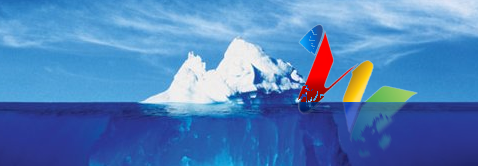Google Wave: Has potential, but let loose too soon

Google Wave has annoyed me so far. Because I am set in my ways and stubborn enough to brandish anything new, exciting and radical to my everyday routine as "a giant waste of my time", I saw Wave as more of a challenge than anything else.

At the moment the only real factor it has in its favour is the real-time collaborative space, and of course I see this as a positive from a students' perspective in a university enterprise arena. But besides that, it has very little substance. Sure it has the avatars, the ability to change the colour of certain items here and there, and it'll give you a contacts list. Besides that? Mostly unfinished features and no obvious end-game.
One of my favourite features so far is the "Sign out" button in the top right hand corner. This has been particularly useful when pulling out my own hair, trying to work out what the hell is going on, and becoming confused as to what is being said.
The potential
If it were to be opened up as a platform where developers could add plug-ins and additional bits of software to make the experience better (which if it isn't already planned, Google - do it, otherwise I can't see anything with it).The 10 minute video showing the cut-down main features, where you can drag and drop files into a wave, doesn't seem to work for me yet using both Firefox and Internet Explorer on Windows. The video (apparently) used Safari on a Mac, so perhaps it is only available for this niche market.
For crying out loud, there aren't even any settings to play with yet. The best bit about software in my mind is the settings to tweak, adjust, tinker with and inevitably screw up.
But maybe the long of the short of it is that it just doesn't even feel slightly ready yet. There's no particular way to get started, no easy way to begin, and I was immensely confused when features which weren't available yet opened up a draft wave to explain it. There is no linear learning curve (excuse the oxymoron) and for me, is too tricky and fiddly to get working with comfortably.
Maybe, like Twitter, nobody really understands it at first, until you dive into it head first and really immerse yourself into the culture of the new product.
But everything you would hope for is there already. The search bar, the contacts pane, navigation areas (like the folders you would expect from an email account), tags, uploading and downloading, and a reading pane. Some may see a paradigm towards using Outlook or perhaps a Google's perspective of how their version of Hotmail would look like; Gmail aside, of course.
The real-life scenario
A course colleague and I are due to give a presentation to our seminar on Wednesday. Through the typical reason of being far too busy and having many other things which take priority over a 15 minute speech on a subject, of which we have spent tens of thousands of pounds to attend a place to merely prove ourselves intellectually, we left it to the last minute.So with this, while we both have Google Wave accounts and suggested it could have been an idea, it was down to general consensus that neither of us had any idea what we were doing on it, and went back to old school methods (excuse the pun).
I separated the topic into two sections - I took one, and he took the other - and this was suggested over email. On Tuesday evening, we'll send each other what we both have, over email still, then to blag our way through it there and then in the seminar after e-preparation.
Email works just nicely for the time being, until Wave offers students something of more substance.
Everybody else seems to love it except me, with the heart-warming exception of fellow curmudgeony colleague, Jason Perlow. In my eyes, as a next-generation student, Wave, at the moment is doing just that, waving, as it slowly sinks beneath the icy, cold waters of the Google ocean.